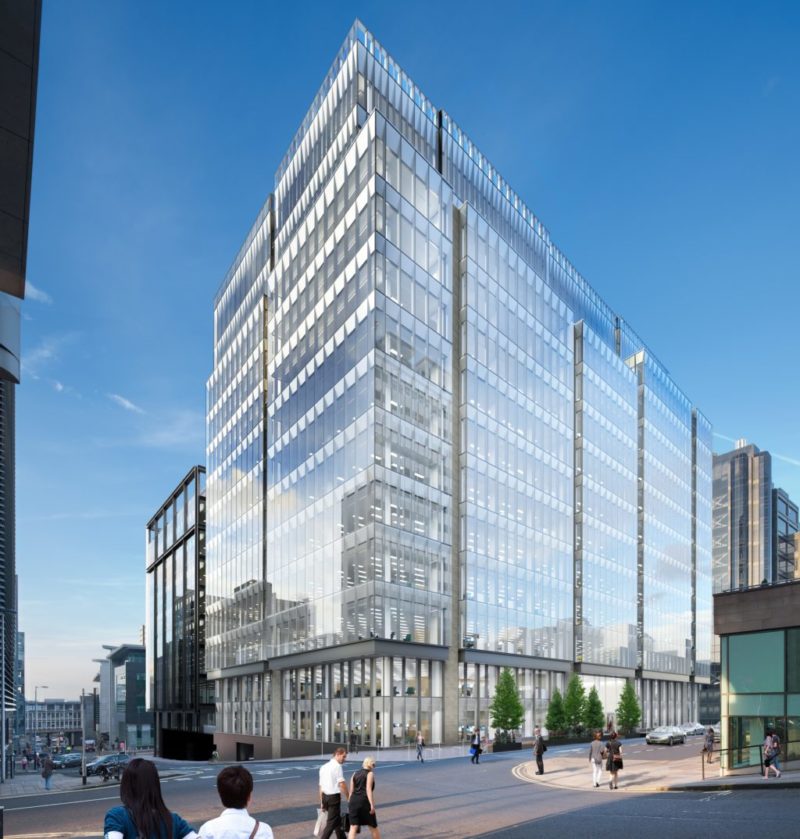
By David Shearer, managing director, HFD Construction
OVER the past weeks, construction has, like many other sectors, come under the spotlight as the world comes to terms with our new ‘normal’ amid the Covid-19 pandemic. Those who can, were encouraged to work from home by the Prime Minister, as one of the first measures introduced to reduce the impact of the virus. However, for industries like construction, where homeworking is virtually impossible, developers had to make big decisions about whether or not to close.
Fast forward a fortnight and the majority of Scottish sites are now shut, from commercial property to housebuilding – despite guidance from Public Health England suggesting that works can continue as long as social distancing measures are put in place. For HFD Construction there was no question and the site of our flagship development at 177 Bothwell Street (in Glasgow) was closed to contractors on Monday 23rd March, regardless of any perceived ambiguity in formal recommendations. In fact, it was one of the first sites to close.
If the pandemic has shown us one thing so far, it’s that it is more important than ever to keep your core values front of mind when making these tough decisions. Our people and their safety are, and always will be, the main priorities.
With work paused, we hope to make a small but significant contribution to flattening the curve, as well as fundamentally protecting the safety of our teams. For the whole construction industry, health and safety is a priority at the best of times, but the reality is that Covid-19 is a concern much larger than anyone could have imagined. It cannot be mitigated with hard hats or steel-capped boots in the same way that we deal with some more common and manageable concerns.
The next big question is about what happens next, especially for building work already in progress. While the country is on lockdown there will be plenty of planning and preparation taking place behind the scenes. HFD Construction, like many other businesses, has adapted to the situation with teams now working remotely.
However, it’s not only the construction sites that will be impacted. The entire supply chain has been affected by this unprecedented turn of events.
In the UK and in Scotland, we’ve also witnessed a new demand for materials required to support the NHS during this critical time. The temporary hospitals being set up in locations such as Glasgow’s SEC has resulted in an immediate requirement for electrical systems, fit-out works and equipment to ensure the facility is ready for use in the quickest time possible. At the same time, the need for PPE has skyrocketed with many construction companies coming forward to donate masks and eye protection to local health boards.
Whenever it may be, we will at some point be given the green light to return to business and the current restrictions on non-essential industries and construction sites will be relaxed. Developers and contractors will need to be ready for this to happen, with plans in place to help the return to normality in a safe and controlled manner.
The impact on the supply chain will undoubtedly have a knock-on effect for construction sites when it comes to the availability of materials. Some sites might have small stockpiles, but those in need of materials to continue with building, may struggle to get their hands on them in the short time frames that they’d ideally like.
At this point, it will again be important to think about the people involved and how to best manage this process for employees and contractors. It may be necessary to increase hygiene provisions and facilities, or introduce new rotations, or even a phased return to site. Now is the time to start putting this type of plan in place.
While the construction industry continues to navigate this unfamiliar situation, it’s important for us all to turn our attention to what really matters: the safety of our people. To help manage the concerns, separate issues into two groups; the factors that we can control and put plans in place for, and those which, unfortunately, we cannot – such as the ongoing impact of Covid-19.








